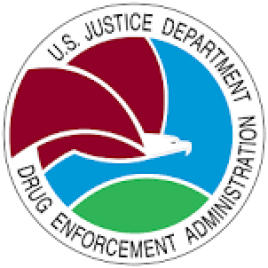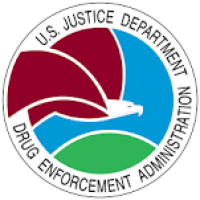DEA To Host Public Listening Sessions on Prescribing Controlled Substances Via Telemedicine

The DEA has announced that it will convene public listening sessions to receive more input about the practice of telemedicine with regard to controlled substances and about potential safeguards that could help prevent and detect the diversion of controlled substances that occurs through telemedicine practices.
The in-person public listening sessions will be held at DEA Headquarters in Arlington, Virginia, on Sept. 12 and 13. The sessions will also be livestreamed, and remote participation will be available.
In an Aug. 7 Federal Register notice (88 Fed. Reg. 52210), the agency said that at the sessions stakeholders — including medical practitioners, patients, pharmacy professionals, industry, law enforcement personnel and others — would be invited to discuss:
- “the advisability of permitting telemedicine prescribing of certain controlled substances without any in-person medical evaluation at all;
- “the availability and types of data that would be useful in detecting diversion of controlled substances via telemedicine that are either already reported or could be reported; and
- “specific additional safeguards that could be placed around the prescribing of Schedule II controlled substances via telemedicine.”
Lessons Learned From the COVID-19 PHE
Under the Ryan Haight Online Pharmacy Consumer Protection Act of 2008 and the DEA’s implementing regulations, there are no limits on a practitioner’s ability to prescribe controlled substances for a patient after the practitioner has conducted at least one in-person medical evaluation of patient.
During the COVID-19 public health emergency (PHE), the DEA granted exceptions to the Ryan Haight Act to allow the prescribing of controlled substances via telemedicine even when the prescribing practitioner had not conducted an in-person medical evaluation of the patient.
The agency said that it “has been, and remains, committed to expanding access to telemedicine in a way that puts patients — and their safety — first, is simple to understand and apply, reflects technological advancements, and its consistent with lessons learned during the COVID-19 PHE and the ongoing opioid epidemic.”
Two NPRMs
In February 2023, the DEA issued two notices of proposed rulemaking (NPRMs) to expand patient access to prescriptions for controlled substances via telemedicine “relative to the pre-COIVD-19 PHE landscape” while attempting to maintain effective controls against diversion.
One proposed rule would allow the prescription of nonnarcotic Schedule III-Schedule V controlled substances via telemedicine under certain circumstances with an initial limit of a 30-day supply of a medication. Additional supplies generally would require an in-person evaluation (88 Fed. Reg. 12875).
The other NPRM proposed allowing the prescription of Buprenorphine via telemedicine for the treatment of opioid use disorder with the same 30-day supply limit and the same in-person evaluation requirement for refills (88 Fed. Reg. 12890).
Comments on the NPRMs
The DEA reported that it had received 38,369 public comments on the two NPRMs — “among the highest number of public comments received on an NPRM in DEA’s history.”
The majority of the comments expressed concerns about the proposed limits on the supply of controlled substances that could be prescribed via telemedicine before an in-person evaluation, the agency reported.
Also, it reported, several hundred comments “raised the possibility of a separate Special Registration” for practitioners who wanted to prescribe controlled substances to a patient with no in-person evaluation whatsoever. The DEA said that it was open to considering such a Special Registration.
“DEA also observes that making permanent some telemedicine flexibilities on a routine and large-scale basis would potentially create a new framework for medicine that fundamentally expands access to controlled substances in a way that warrants a new framework for accountability based, in part, on increased data collection and visibility into prescription practices in order to ensure patient safety and prevent diversion in near-real-time,” the agency stated.
Specific Questions
Although the DEA said that it “welcomes all relevant information or opinions regarding telemedicine,” the agency noted that it was particularly interested in the following questions:
- If telemedicine prescribing of schedule III–V medications were permitted in the absence of an in-person medical evaluation, what framework, including safeguards and data, with respect to telemedicine prescribing of schedule III–V medications do you recommend to help DEA ensure patient safety and prevent diversion of controlled substances?
- Should telemedicine prescribing of schedule II medications never be permitted in the absence of an in-person medical evaluation? Are there any circumstances in which telemedicine prescribing of schedule II medications should be permitted in the absence of an in-person medical evaluation? If it were permitted, what safeguards with respect to telemedicine prescribing of schedule II medications specifically would you recommend to help DEA ensure patient safety and prevent diversion of controlled substances?
- If practitioners are required to collect, maintain, and/or report telemedicine prescription data to DEA, what pieces of data should be included or excluded? What data is already reported to federal and state authorities, insurance companies, and other third parties?
- If pharmacies are required to collect, maintain, and/or report telemedicine prescription data to DEA, what pieces of data should be included or excluded? What data is already reported to federal and state authorities, insurance companies, and other third parties?
For More Information
Members of the public who wish to attend the listening sessions in person must register online by Aug. 21.
The DEA said those who wish to give an oral presentation, in person or virtually, must tell the agency when they register. The presentations may be no longer than 10 minutes.
Additional information about the public listening sessions is available in the Aug. 7 Federal Register notice.



